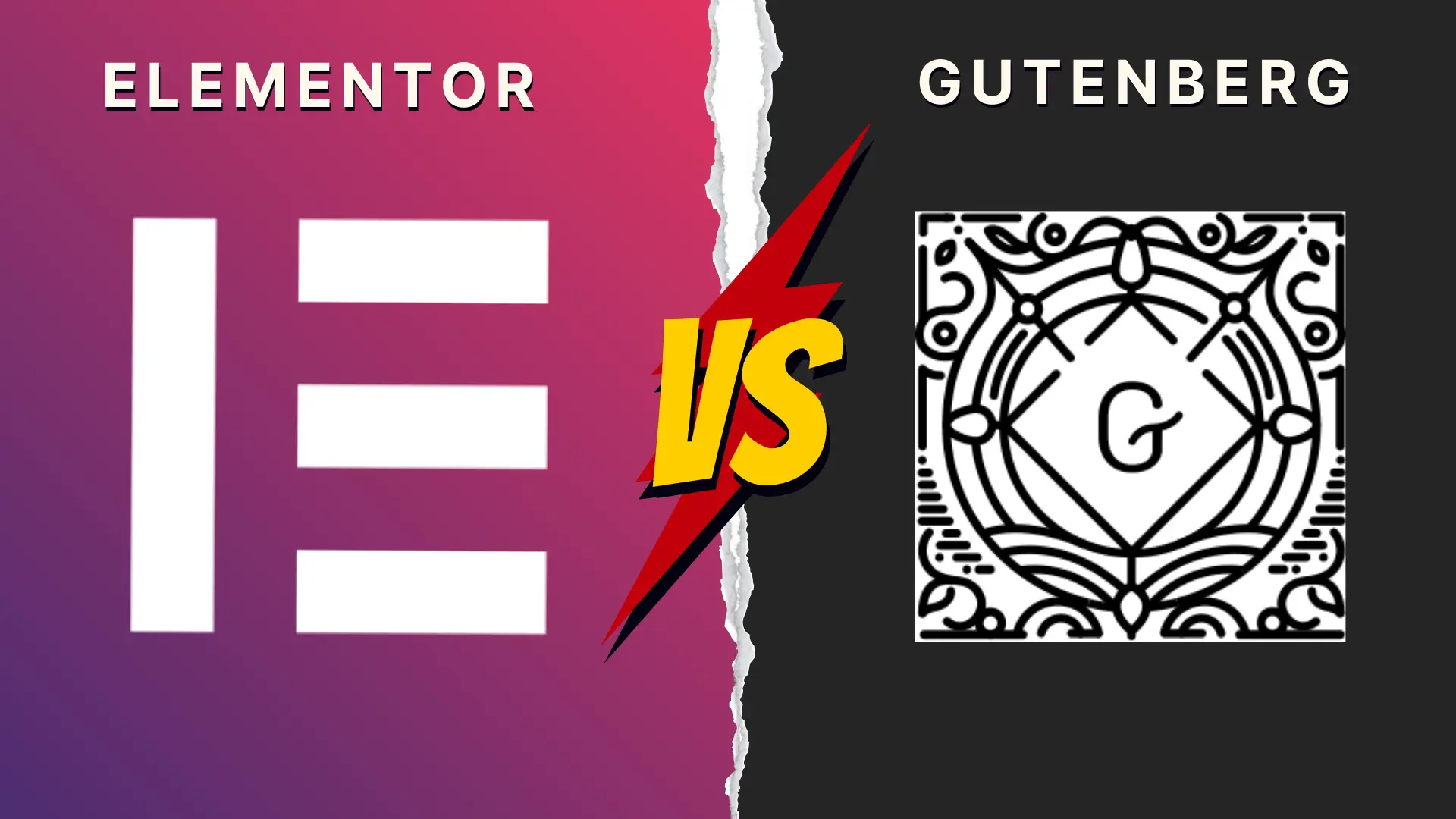
Introduction
Choosing the right page builder for your WordPress site in 2025 is one of the most important decisions for any small business. The two most popular options are Elementor and Gutenberg (the default WordPress block editor). Over the years, both have improved significantly. However, they serve different purposes, so knowing the pros and cons is essential.
In this Elementor vs Gutenberg 2025 guide, we will compare them based on speed, SEO, design flexibility, ease of use, cost, and overall business suitability. By the end, you’ll know which one fits your needs best.
1. What Is Elementor?
Elementor is a drag-and-drop page builder plugin for WordPress. It allows you to design visually appealing pages without coding. With Elementor, you can create complex layouts, animations, and interactive features easily.
Key Features of Elementor:
- Live drag-and-drop editing
- 100+ pre-made templates
- Custom widgets (forms, sliders, tabs, etc.)
- Responsive design controls
- Works with most WordPress themes
Best for: Businesses that want full design freedom and visually rich websites.
2. What Is Gutenberg?
Gutenberg is the default WordPress block editor, built directly into WordPress. It focuses on speed, clean code, and a streamlined editing experience. Each piece of content (paragraph, image, video) is a block that you can rearrange.
Key Features of Gutenberg:
- Lightweight and built into WordPress
- Minimal interface for faster editing
- Supports reusable blocks
- Integrates easily with WordPress themes
- No extra plugin required
Best for: Businesses that want fast-loading and minimal maintenance websites.
3. Speed & Performance
Website speed is critical for SEO and user experience. Gutenberg is built into WordPress, meaning no extra code bloat and faster loading times, helping with Google Core Web Vitals.
Elementor, on the other hand, adds more CSS and JavaScript, which can slow down your site slightly. However, with caching, image compression, and a quality hosting provider, Elementor sites can still perform well.
Winner: Gutenberg for pure speed, but Elementor can be optimized for great performance.
4. SEO Friendliness
Gutenberg: Naturally more SEO-friendly due to clean code and fast loading times.
Elementor: Works well with SEO plugins like Yoast SEO or Rank Math. However, you’ll need to focus on speed optimizations for maximum SEO benefits.
Winner: Gutenberg for technical SEO; Elementor for visually optimized landing pages.
5. Design Flexibility
Elementor: Offers unlimited design possibilities, including custom layouts, animations, and effects.
Gutenberg: Limited design options unless you install add-on plugins.
Winner: Elementor for creative freedom.
6. Ease of Use
Elementor: Beginners love the drag-and-drop interface for its simplicity.
Gutenberg: Easier for content-focused users, but advanced designs require CSS knowledge.
Winner: Tie – depends on whether you prioritize design or content.
7. Cost
Elementor: Free version available; Pro starts at check pricing.
Gutenberg: Completely free and built into WordPress.
Winner: Gutenberg for budget-friendly use, Elementor for premium features.
8. Which Should You Choose in 2025?
Choose Elementor if:
- You want complete control over design
- You need landing pages or visually rich layouts
- You’re okay with minor performance optimization work
Choose Gutenberg if:
- You want a fast, lightweight site
- Your focus is mainly on content
- You prefer zero additional plugin costs
Quick Comparison Table
| Feature | Elementor | Gutenberg |
|---|---|---|
| Speed | Medium (needs optimizing) | Fast & lightweight |
| SEO | Good (with tweaks) | Excellent |
| Design Control | Full | Limited |
| Ease of Use | Beginner-friendly | Simple but less visual |
| Cost | Free & Paid (Pro) | Free |
Pro Tip for 2025: Many businesses use both – Gutenberg for blogs and content pages, Elementor for high-converting landing pages.


